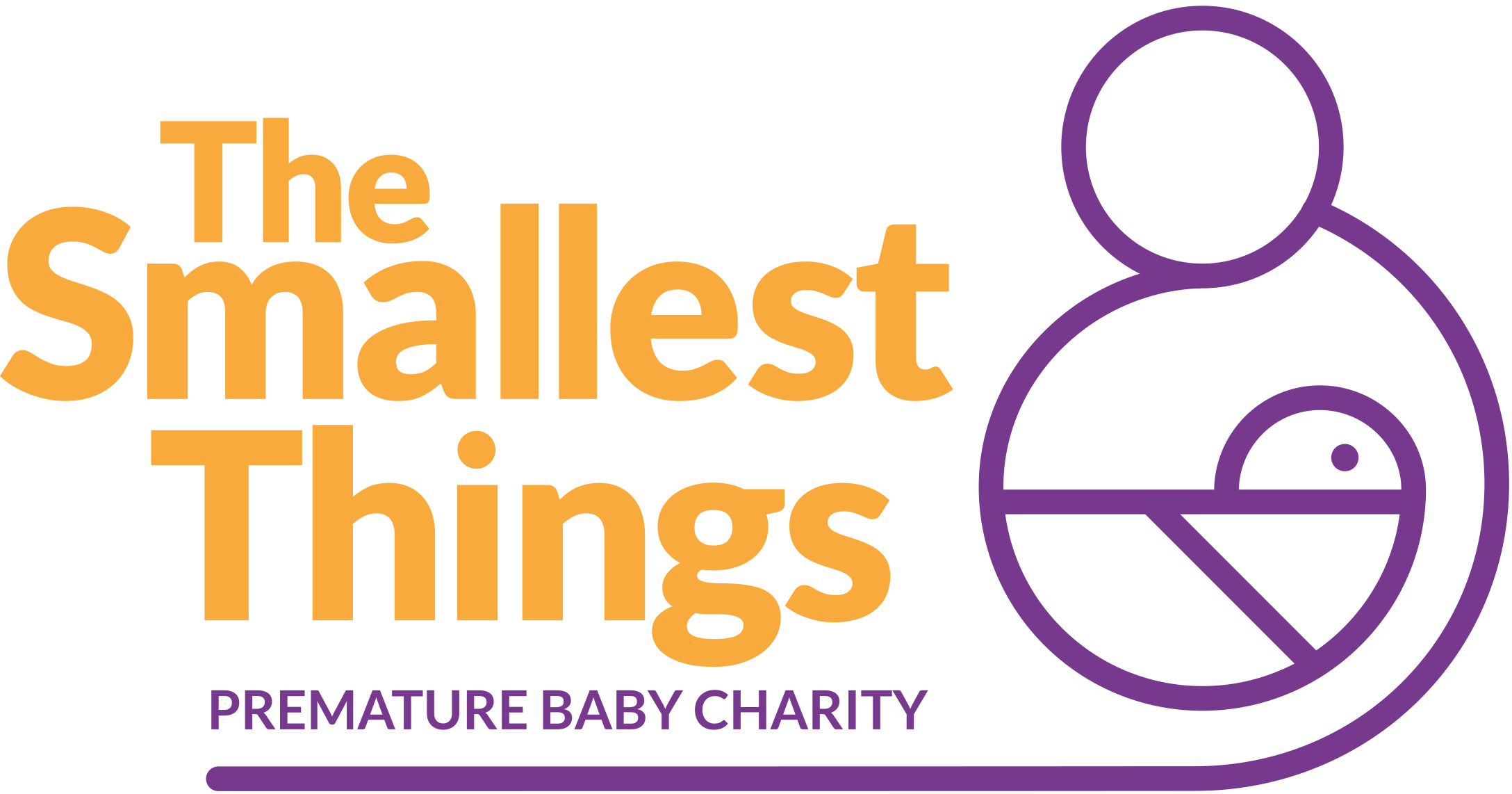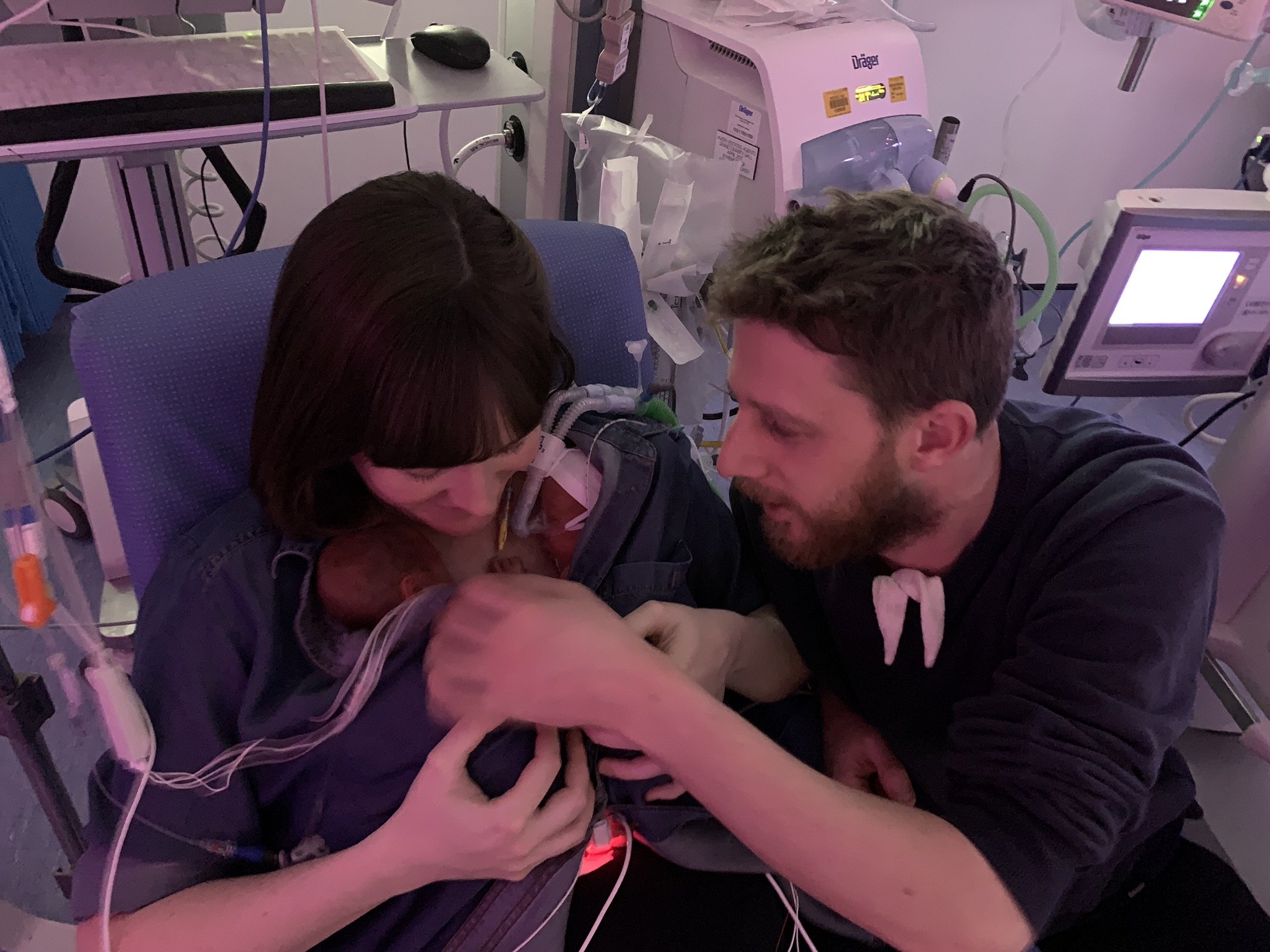World Prematurity Month 2022: The Early Years challenge
Erin’s twins are now three-and-a-half years old and enjoying nursery
From the moment my husband and I found out I was carrying twins, we knew it was highly likely they would spend time in neonatal care. We discovered I was pregnant with a boy and a girl and were told to prepare for a range of outcomes.
My daughter was growth restricted, and my pregnancy was monitored closely. At 30 weeks and four days, my daughter’s placenta abrupted and, in among the chaos, her brother’s heart rate started dipping, telling the team it was time to get them both out.
A place of extremes
The first time Erin and her partner cuddled their twins together as a family of four
Their premature birth catapulted us into the world of neonatal, where my initial feeling was one of luck. Firstly, that we were all alive and secondly that we were all in the same hospital. I felt lucky the ambulance had made it in time and the doctors hadn’t left my daughter in there a moment longer. I also found a strange comfort in the order of the beeping machines, of the timed feeds and the nurses telling me whether my babies were okay or not.
In total, my twins spent eight weeks in hospital. Those eight weeks changed me as a person. NICU is a place of extremes: absolute love mixed with absolute fear; every single feeling at once or no feelings at all.
Many people say that only other neonatal parents truly understand, and mostly I think this is true.
“NICU is a place of extremes: absolute love mixed with absolute fear; every single feeling at once or no feelings at all”
When talking about NICU, I often find myself walking a line between wanting to raise awareness yet also not wanting to frighten people or make them feel uncomfortable. Sometimes, hearing about what the tiniest of babies go through is too much for people to comprehend. It is freeing to speak to parents who have also been through it, because you know that nothing you can say will shock or worry them.
Personal meets professional
Prior to my twins being born, I had spent years working in Early Years education. I was the manager of a nursery and had strong interests in early childhood mental health and wellbeing, as well as doing a large amount of family support – working most often with mothers.
Erin’s twins spent eight weeks in neonatal care
The main thing that shocked me when my professional world and personal life collided in becoming a mother myself, was the lack of support that we received after we left the neonatal unit. It felt troubling knowing what myself, my partner and our babies had been through, and that there was no tailored support available to us. I felt a sense of disbelief that this cohort of vulnerable children and families were left to the luck of the draw of universal services, when I strongly believed that early childhood was a unique window for supporting children’s later wellbeing and I understood the impact that parental mental health has on children.
This disbelief and shock meant that I wrote my Masters dissertation about follow-up care in the first two years after NICU. I interviewed six mothers about their experiences, and the themes that emerged were, sadly, universal and strongly resonated with me. Often it was felt children received adequate physical support, but support for parents was rare or non-existent, particularly with regards to their mental health. So much more should be done, and I’m determined to advocate for our community in any small way that I can.
Prem Aware Award
As a nursery manager, I’m delighted my setting has received the Prem Aware Award. Thanks to the PRISM training, we are implementing strategies such as a tailored early maths curriculum, and increased opportunity for pre-school children to develop their attention and concentration skills.
My twins attend my setting and my small team is aware of some of the challenges we went through as a family. It feels good that they now also understand more about the impact our experiences may have had on my children.
“It’s important that Early Years professionals understand the wide range of effects a neonatal stay may have on a family”
I feel excited about the plans for the training and the Award to include more specific information about Early Years education in the future. We are often the first professionals who will be involved with families after their neonatal team, and we may be the first people that parents have left their babies with after NICU. This is a big deal, and it’s important that Early Years professionals understand the wide range of effects that a neonatal stay may have on a family. I would recommend that settings consistently ask whether children have spent any time in a neonatal unit, that they give them an enhanced settling-in process, dedicating specific time to speaking to the parents about their NICU stay, and give them a consistent and experienced key person with knowledge of prematurity. Feelings should be validated and parents listened to carefully.
We all experience NICU differently but it is an important and impactful part of our lives, and it is affirming when it is treated as such.
With thanks to Erin for sharing her twins’ story.



